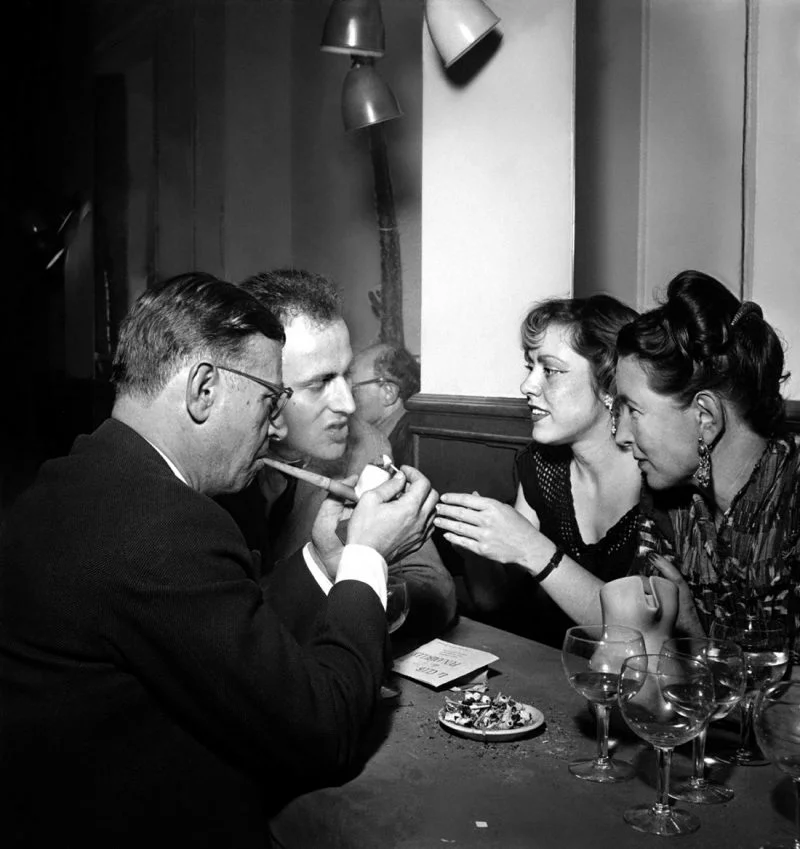France, with its rich cultural heritage and pivotal role in global history (largest empire in Europe 3 times
over!), offers an unparalleled experience for students who choose to study history within its borders - pro tip:
just don’t cross the Maginot line. From ancient times to the present day, the country has been at the heart of
major European and global transformations, making it an exceptional setting to immerse oneself in the study of
history - literally, there are monuments, ancient streets, Roman aqueducts, and 18th century ornamentations
everywhere you look! The benefits of studying history in France are numerous, encompassing academic, cultural,
and personal growth.
1. Access to World-Class Institutions and Libraries
 Image courtesy of “La tete en l’air”
Image courtesy of “La tete en l’air”
France is home to some of the world’s oldest and arguably most prestigious universities and academic
institutions including the Sorbonne University in Paris, Sciences Po, and the almighty École Normale Supérieure.
These institutions offer a rigorous and comprehensive history curriculum, led by renowned scholars and
historians. Students benefit from cutting-edge research facilities and extensive libraries like my personal
favorite the Bibliothèque nationale de France, which houses one of the largest collections of historical
documents and books in the world.
Moreover, these institutions often have well-established partnerships with archives, museums, and other
historical repositories, giving students direct access to primary sources, rare manuscripts, and firsthand
materials that are invaluable for historical research.
2. Immersion in France’s Deep Historical Roots
 Image courtesy of Encyclopedia Britannica
Image courtesy of Encyclopedia Britannica
France's history spans from ancient Roman settlements to medieval kingdoms, the Renaissance, the Enlightenment,
and revolutionary upheavals. By studying history in France, students can explore this rich past not only in
books but by visiting historical landmarks and experiencing the places where history unfolded. The opportunity
to study in a country that has been a center for historical change offers a unique, firsthand learning
experience.
Students can walk the halls of the Palace of Versailles to understand the grandeur of the French monarchy, or
visit the beaches of Normandy to reflect on the events of World War II and for some World War II scholars,
history can be found in Paris as well at the monuments dedicated to French involvement in the Holocaust.
Depending on their interests, students can explore medieval towns like Carcassonne, visit Roman ruins in
Provence, or stand in front of iconic sites such as the Notre-Dame Cathedral and the Louvre. These experiences
bring history to life in a way that is impossible in an overpopulated classroom three thousand miles away.
3. Exploring France’s Role in Global History
France has played a critical role in shaping not just European but world history. From its contributions to the
development of Western thought during the Enlightenment to its colonial empire spanning Africa, the Americas,
and Asia, France has been a notorious agent on the global stage. Students of history in France gain insight into
these global connections and their lasting impacts - for better and worse - on world politics, culture, and
societies.
Studying French history also opens up pathways to exploring global issues such as decolonization, human rights,
and international relations. The French Revolution, for example, is a cornerstone for understanding modern
concepts of citizenship, democracy, and social justice, while France’s imperial history provides important
lessons on colonialism and its consequences. In this context, students studying history in France can examine
the interconnectedness of world events from a uniquely French perspective.
4. Cultural Enrichment and Language Acquisition

Living and studying in France also offers immense cultural benefits. France has long been a hub for the arts,
literature, philosophy, and intellectual movements. By studying in France, students are immersed in a vibrant
cultural landscape that has nurtured historical thinkers like Voltaire, Rousseau, and Sartre (sorry but not at
Café de Flore - the line is immense and you won’t have the time) as well as contemporary movements in arts and
culture.
Language is another critical benefit. Studying history in a French-speaking environment provides students with
the opportunity to improve their language skills, particularly when reading historical texts in their original
language. French is an essential language for historical research, especially for those studying European,
African, or Caribbean histories. Mastering French opens up broader academic and professional opportunities in
fields such as diplomacy, international relations, and academia.
5. Exposure to Diverse Historiographical Perspectives
France’s academic tradition emphasizes critical thinking, interdisciplinary studies, and engaging with diverse
historiographical perspectives. French historians are known for their contributions to fields such as social
history, economic history, and cultural history, as well as for pioneering the Annales School, which emphasized
long-term historical structures over singular events. This emphasis on varied methodologies offers students a
richer, more nuanced understanding of history.
Moreover, France’s geographic and cultural position at the crossroads of Europe means that students are exposed
to a wide range of historical narratives and perspectives, from Mediterranean and North African history to
European integration and transatlantic relations. This diversity encourages students to think critically about
how history is written, interpreted, and remembered across different cultures and nations.
6. Career Opportunities and Global Networks
 Image courtesy of Encyclopedia Britannica
Image courtesy of Encyclopedia Britannica
Despite what your overbearing aunts and uncles might say, studying history in France can open the door to a wide
array of career opportunities. France’s reputation for academic excellence is recognized worldwide, and degrees
from French institutions are highly regarded in academia, cultural institutions, international organizations,
and beyond.
In addition, many French universities and institutions maintain strong international networks, enabling students
to connect with scholars, professionals, and organizations around the world. Internships and partnerships with
museums, NGOs, government agencies, and think tanks are commonly available, providing students with hands-on
experience in their chosen field.
Whether a student plans to pursue a career in teaching, research, journalism, or diplomacy, the analytical
skills, historical knowledge, and global perspective gained from studying history in France are invaluable
assets.
Studying history in France offers students a unique combination of academic excellence, cultural immersion, and
exposure to global perspectives. The country’s rich historical legacy, world-class institutions, and vibrant
intellectual traditions stretching back to the medieval epoch provide a fertile ground for learning and personal
growth traversing around the city. Whether exploring ancient ruins, engaging with original historical texts, or
developing a nuanced understanding of France’s impact on the world, students in France gain not only knowledge
but a deeper appreciation for the complexities of history and its ongoing relevance to contemporary society.